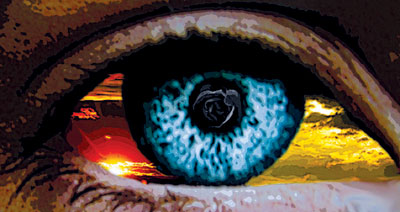All Nonfiction
- Bullying
- Books
- Academic
- Author Interviews
- Celebrity interviews
- College Articles
- College Essays
- Educator of the Year
- Heroes
- Interviews
- Memoir
- Personal Experience
- Sports
- Travel & Culture
All Opinions
- Bullying
- Current Events / Politics
- Discrimination
- Drugs / Alcohol / Smoking
- Entertainment / Celebrities
- Environment
- Love / Relationships
- Movies / Music / TV
- Pop Culture / Trends
- School / College
- Social Issues / Civics
- Spirituality / Religion
- Sports / Hobbies
All Hot Topics
- Bullying
- Community Service
- Environment
- Health
- Letters to the Editor
- Pride & Prejudice
- What Matters
- Back
Summer Guide
- Program Links
- Program Reviews
- Back
College Guide
- College Links
- College Reviews
- College Essays
- College Articles
- Back
To Kill A Mockingbird
It has been over 50 years since the publication of To Kill a Mockingbird by Nelle Harper Lee. Still to this day the book speaks loudly to the U.S. Since then, The Great Depression, the Willie Lynch Letter and the Jim Crow Laws are no more, but the book reminds of what happened. In this essay, some key points that will be discussed are on how the U.S. has changed legally, socially, and technologically.
Our country has changed in many ways legally. For much of the twentieth century, crime and punishment have provided some of the most powerful symbols of the racial divide in America. In the early decades, lynching, chain-gang style penal practices, and prosecutorial and judicial bigotry were common, particularly in the southern criminal justice systems. Throughout the United States, racial minorities were generally tried by all-white juries in all white courtrooms. African Americans accounted for 405 of the 455 of executions for rape between 1930 and 1972. Sentencing laws were discriminatory, with the harshest sanctions given to blacks who victimized whites. The police were also instrumental in racial violence, by actively participating in, encouraging, or failing to restrain mobs. Over much of the last century, police instigated or participated in race riots in cities nation-wide, and police behavior encouraged hostility toward and violence in minority communities. Over the past fifty years, however, U.S. Supreme Court cases and legislation inspired and led by the civil rights movement, “due process,” and other reform movements have made discrimination on the basis of race unconstitutional. Minority defendants are no longer routinely denied bail, charged indiscriminately, without legal representation, or punished disproportionately. Law enforcement policies and practices place far greater emphasis on professionalism and accountability, although incidents involving police violence still occur and tensions between minority communities and police persist. Racial and ethnic disparities persist in crime and criminal justice in the United States. Minorities remain overrepresented in delinquency, offending, victimization, and at all stages of the criminal justice process from arrest to pretrial detention, sentencing( including capital punishment), and confinement. Since the trailblazing work of W.E.B. Dubois on race and criminality more than a century ago, researchers have made significant efforts to examine the causes and consequences of racial disparities in criminal justice processing; the extent to which these differences are attributable to discrimination or to differential rates of offending; and whether these patterns of overrepresentation have changed over time. These are some ways our country changed legally.
There are a lot of ways that our country changed socially. American social change has been intensively linked with public voice. The founding discourse of the United States stresses the voice of people. In addition, the United States is a nation of new groups, most notably the immigrants but also nativist groups such as new religions and utopians of various kinds. "Founding" is thus the great American activity. Social movements are such groups founded for particular purposes. The result is that, in addition to the traditional movements that urge political change from outside the political system, two additional types of social movement have characterized movements in the United States: The Identity Movement. Identity movements provide a place for those who share a particular characteristic -- ethnic origin, sex, race, religion, and creed -- to have public voice. Integrative movements seek to provide groups access to dominant structures of power. These are some ways or country changed socially.
Our country has also had a big change in technologically. The some examples of this are computers and cell phones. Fifty years ago, there were no personal computers; no cell phones. Today, computers and cell phones are common. The widespread use of computers, cell phones and other technology has had a dramatic effect in almost everyone's life, Heart attacks, strokes, cancers are all still deadly, but not nearly to the degree they were in 1960. We have made amazing advances in surgery, vaccines, treatments, etc. that have extended the lifespan of humans well into the 70s and 80s.
In this essay, some key points that have been discussed are on how the U.S. has changed legally, socially, and technologically. The U.S. has changed in many of ways and some of these ways are linked to, To Kill a mockingbird. The country has changed legally by the police are now protecting blacks and not watching them get beat. Also the U.S. has changed socially by us having the ability for public speech without harm. Last but not least, the U.S. has changed technologically by computers and cell phones.

Similar Articles
JOIN THE DISCUSSION
This article has 0 comments.